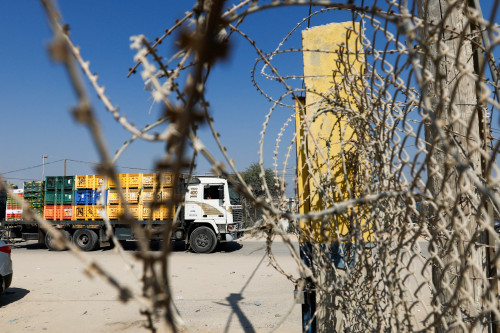By Steven Scheer
TEL AVIV (Reuters) – Israel’s economy posted scant growth in 2024, with the war in Gaza against Palestinian Islamist group Hamas taking a toll on investment and exports, but growth is expected to bounce back this year following ceasefire deals.
Gross Domestic Product grew 1% last year to $565 billion, sustained mainly by a spike in the government’s military spending, down from 1.8% in 2023 but above the Bank of Israel’s estimate of 0.6%, the Central Bureau of Statistics said in an initial estimate on Monday.
The shekel was up 0.5% against the dollar to a rate of 3.56 after the data were published.
Israel’s military conflicts in Gaza and Lebanon meant a roller coaster year for the economy.
The war in Gaza broke out after Hamas’ cross-border attack on southern Israel in October 2023. A ceasefire came into effect on January 19 this year. The war expanded to battling Hezbollah in Lebanon until a ceasefire on November 27.
Oz Shimoni, head of the bureau’s macroeconomics division, said there was no single item that influenced growth data in 2024.
“It was many components,” he told Reuters. But “The 1% increase is only because of government expenses.”
Growth suffered partly due to a smaller workforce since tens of thousands of residents were called up for reserve military service. The bureau separately said the jobless rate slipped to 2.6% in January from 2.7% in December.
The business sector, which excludes government spending, fell 0.6%. On a per capita basis, GDP fell 0.3% to around $40,000 – compared with gains of 2.1% in the United States and 0.6% in the UK and Italy.
For the fourth quarter, GDP grew by an annualised 2.5% according to the preliminary estimate, below a 5.7% rise projected in a Reuters poll. On a per capita basis, GDP gained 1.5% in the quarter.
INFLATION UP
The weak growth data comes after the bureau on Friday reported that the annual inflation rate jumped to 3.8% in January from 3.2% in December, a figure that will continue to prevent the Bank of Israel from lowering short-term interest rates any time soon.
Policymakers have said they hope they can reduce rates later in 2025 should inflation ease.
Israel’s see-sawing economy saw sharp contraction in the fourth quarter of 2023, when the Gaza war began. The economy rebounded to an annualised 15.6% rate of growth in the first three months of 2024, before shrinking 0.8% in the subsequent three months, and returning to growth in the final half of the year.
Across 2024, government spending led growth with a 13.7% rise, while consumer spending rose 3.9%. Investment in fixed assets fell 5.9% and exports dipped 5.6%.
In the fourth quarter, most major components of GDP rose.
The Bank of Israel estimates growth of 4% in 2025 and 4.5% in 2026.
(Reporting by Steven Scheer; Editing by Alison Williams, Bernadette Baum and Aidan Lewis)




